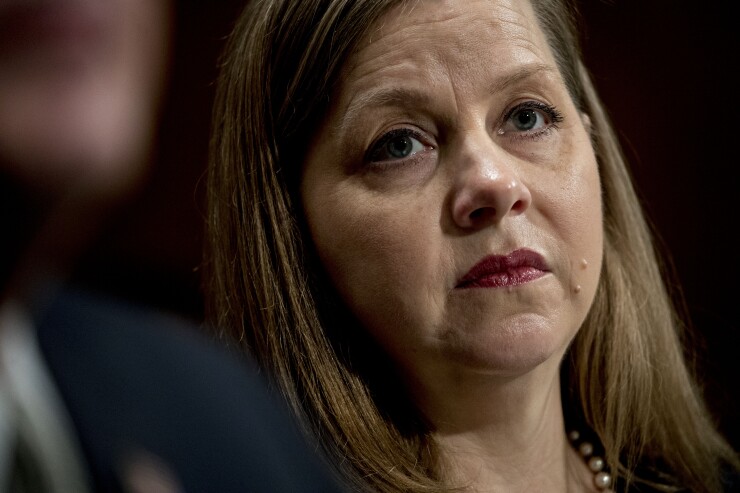
Federal Reserve Board Gov. Michelle Bowman called for banks to provide comments and express concerns about
During brief remarks at an event hosted by the Independent Community Bankers of Colorado on Friday, Bowman said it was "absolutely imperative" that bankers flag potential consequences from rule
"I recognize that in some instances, multiple, interrelated proposals out for comment at the same time may complicate or even frustrate the ability to provide meaningful comment," she said. "Even so, I strongly encourage your participation to inform the rulemaking process."
Bowman's call to action was aimed at July's Basel III endgame proposal, which would adjust risk capital rules for banks with more than $100 billion in assets, as well as
She also noted that the Fed was contemplating revisions to the Community Reinvestment Act, exploring climate-focused regulations and making
Bowman has emerged as a leading voice against the Fed's effort to increase capital in the banking system. She and Gov. Christopher Waller
Bowman and Waller — the last members of the Board of Governors that former President Donald Trump appointed — also
During her speech Friday, Bowman said the collapse of Silicon Valley Bank and two other large regional banks this past spring highlighted shortcomings in bank supervision and regulation that should be addressed. But, she said, any policy changes implemented by the Fed should be focused on addressing specific issues that contributed to this year's bank failures. She also said new rules should be "informed by data, analysis, and genuine debate and discussion among policymakers."
She also emphasized the importance of transparency and engaging with the public.
"All of the comments, data, and analysis enable policymakers to make informed decisions throughout the rulemaking and proposal process," Bowman said. "Information about the intended and unintended impacts of these initiatives is especially informative. If the Fed and other banking agencies have not provided sufficient context, data, and analysis to satisfy stakeholder questions or concerns, commenters should provide that perspective as well."
During the remarks, Bowman also addressed the Federal Open Market Committee's decision to
"The Summary of Economic Projections released in connection with the September FOMC meeting showed that the median participant expects inflation to stay above 2% at least until the end of 2025," she said. "This, along with my own expectation that progress on inflation is likely to be slow given the current level of monetary policy restraint, suggests that further policy tightening will be needed to bring inflation down in a sustainable and timely manner."






